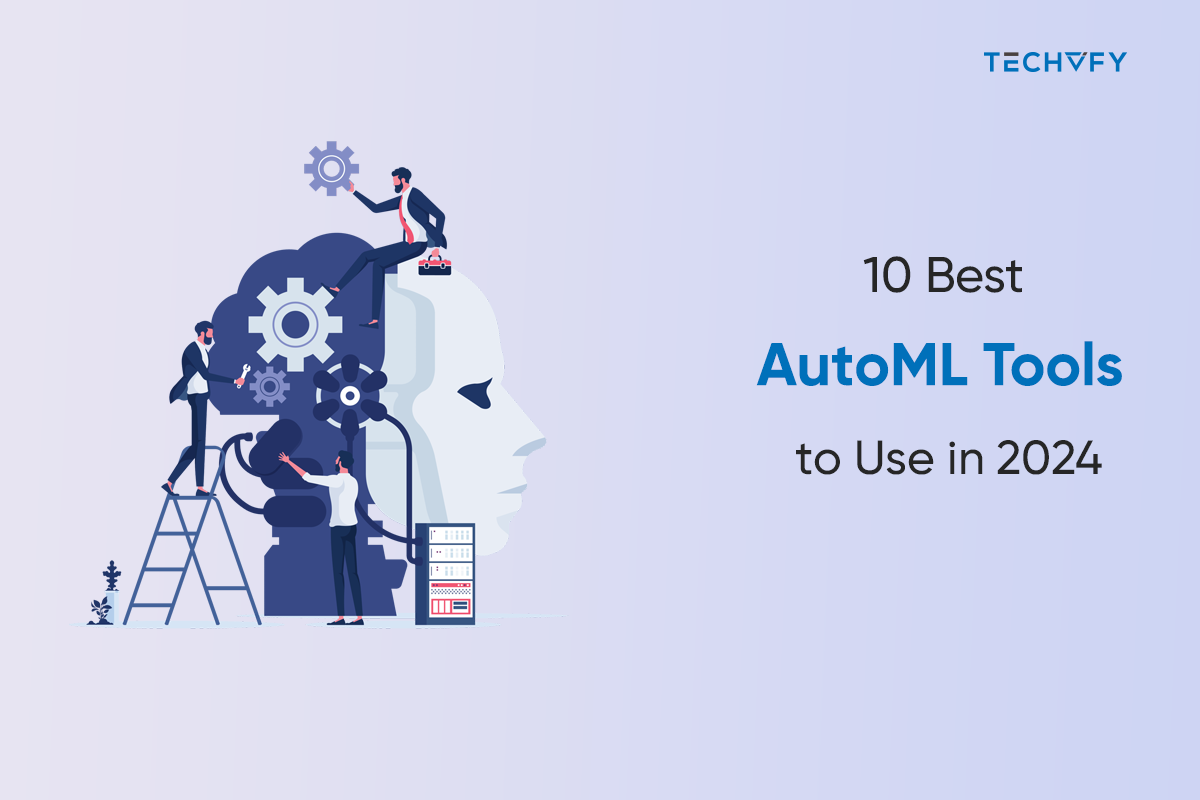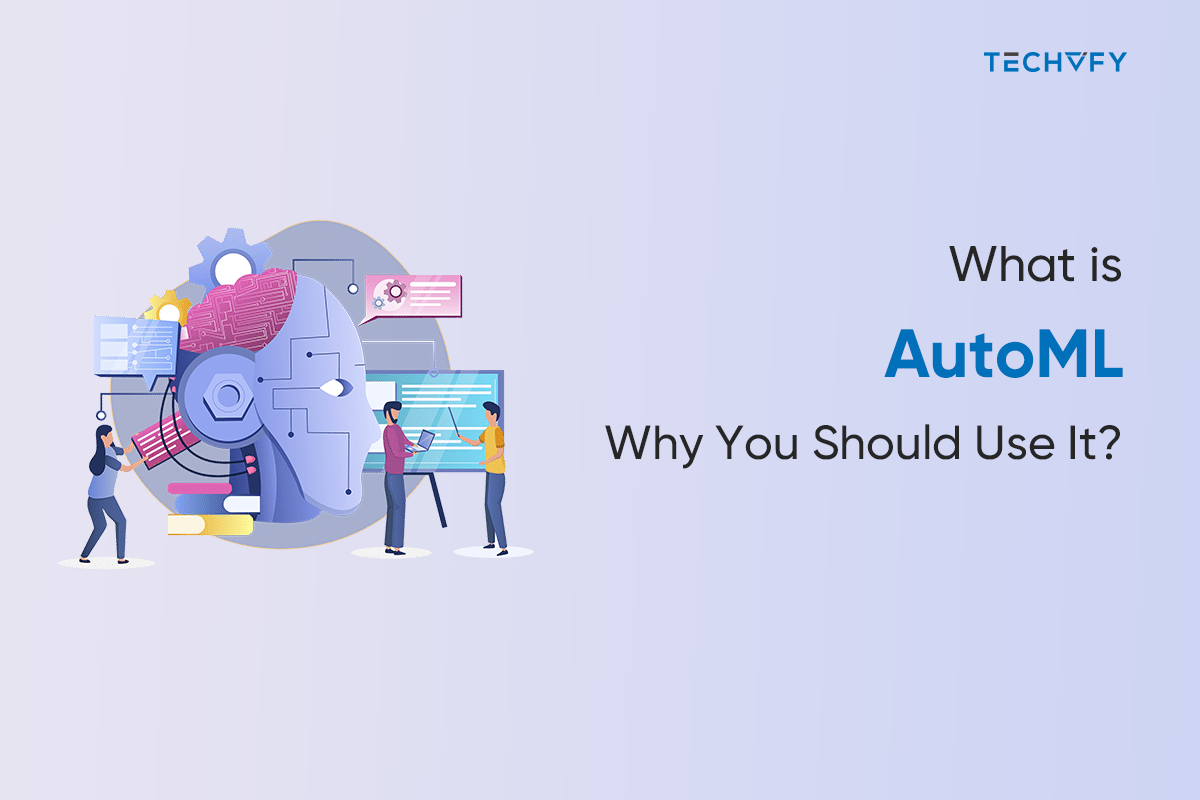Why Cloud Computing in Manufacturing is The Upcoming Trend
- TECHVIFY Team
- 0 Comments
Cloud computing in manufacturing enhances the industry by leveraging computing power and big data insights, making it a crucial tool. Its role has expanded significantly, influencing applications of cloud computing in the manufacturing industry, from machine data collection to supply chain management via IoT and advanced technologies.
Despite adoption challenges, manufacturers increasingly favor cloud solutions over traditional on-premises systems. This shift addresses data management difficulties, supply chain visibility, and high infrastructure costs. Consequently, many manufacturers are integrating cloud computing into their operations, steering towards a comprehensive digital transformation in the manufacturing sector.
I. Importance of Cloud Computing in Manufacturing Industry
The importance of cloud computing in the manufacturing sector is multifaceted and transformative. Here are the key reasons why cloud computing is becoming increasingly crucial in this industry:
- Enhanced Operational Efficiency
One of the key benefits of cloud computing in manufacturing is the significant improvement in operational efficiency. It streamlines processes by automating tasks and eliminating the need for extensive physical infrastructure. This leads to a leaner, more agile operation, allowing manufacturers to focus on core production activities.
- Real-time Data Access and Monitoring
Highlighting the importance of cloud computing in manufacturing, manufacturers gain instant and remote access to crucial operational metrics, such as machine performance, inventory levels, and production schedules. This real-time visibility enables quick decision-making and timely adjustments, ensuring operations run smoothly and efficiently.
- Scalability and Flexibility
Cloud computing in manufacturing offers unparalleled scalability and flexibility, allowing businesses to easily adjust their computing resources, storage capacity, and software applications to meet changing demands. This adaptability is crucial in an industry where market conditions and production requirements change rapidly.
- Cost Reduction
Cloud computing helps manufacturers reduce costs by avoiding significant investments in IT resources like computing power, data storage, and processing. The pay-per-use model offered by most cloud providers also means manufacturers can invest in technology as needed without large upfront capital expenditures.
- Improved Collaboration and Mobility
Cloud computing facilitates collaboration by connecting different departments and external stakeholders on a single platform. It also supports mobility, allowing staff to access data and systems from anywhere, which is particularly beneficial for businesses with multiple locations or those that require remote access.
- Data Security and Compliance
Cloud-based solutions offer enhanced data security compared to traditional on-premises systems. With advanced data encryption and a wide array of security services available in the cloud, manufacturers can ensure that their sensitive data is protected against breaches and comply with industry regulations.
Understanding what is cloud manufacturing helps us appreciate these key applications and real-life use cases in the sector, here are some of the key applications and real-life use cases of cloud computing in the manufacturing sector:
II. Applications of Cloud Computing in Manufacturing Industry
1. Supply Chain Management
Application: Cloud computing streamlines supply chain operations by providing real-time visibility and analytics. It enables efficient inventory management, demand forecasting, and logistics planning.
Use Case: A manufacturing company can use cloud-based tools to track inventory levels across multiple locations in real-time, predict product demand based on historical data, and optimize delivery routes for their logistics network.
2. Smart Manufacturing
Application: Also known as Industry 4.0, smart manufacturing leverages cloud computing for automation, data exchange, and advanced analytics. It integrates IoT devices, AI, and machine learning to create intelligent and autonomous production systems.
Use Case: An automotive manufacturer uses IoT sensors connected to a cloud platform to monitor and analyze machine performance. The insights gained enable predictive maintenance, reducing downtime and increasing overall equipment effectiveness (OEE).
3. Product Lifecycle Management (PLM)
Application: Cloud-based PLM systems allow manufacturers to manage the entire lifecycle of a product efficiently. It facilitates collaboration, data sharing, and project management from product conception through design, manufacturing, service, and disposal.
Use Case: A consumer electronics company uses a cloud-based PLM system to collaborate with global teams, manage design changes, and maintain compliance with industry standards throughout product development.
4. Customer Relationship Management (CRM)
Application: Cloud-based CRM systems help manufacturers manage customer interactions, sales processes, and after-sales services. It provides a centralized platform for storing customer data, tracking sales opportunities, and analyzing customer behavior.
Use Case: A machinery manufacturer implements a cloud-based CRM to track customer interactions, manage sales pipelines, and provide timely customer support, which improves customer satisfaction and increases sales.
5. Enterprise Resource Planning (ERP)
Application: Cloud-based ERP systems integrate various business processes, such as finance, HR, procurement, and operations, into a single system. It provides real-time data and analytics, improving decision-making and operational efficiency.
Use Case: A textile manufacturer adopts a cloud-based ERP system to streamline financial operations, manage human resources, and automate procurement processes, resulting in cost savings and enhanced operational efficiency.
6. Data Analytics and Business Intelligence
Application: Cloud computing provides powerful tools for data analytics and business intelligence. Manufacturers can analyze large volumes of data to gain insights into market trends, customer preferences, and operational performance.
Use Case: A food and beverage company uses cloud-based analytics tools to analyze consumer data and market trends, enabling them to effectively tailor their product offerings and marketing strategies.
7. Disaster Recovery and Business Continuity
Application: Cloud-based solutions offer robust disaster recovery and business continuity capabilities. Data is backed up in multiple locations, ensuring that operations can quickly resume in case of a system failure or other disruptions.
Use Case: A chemical manufacturing plant leverages cloud-based disaster recovery solutions to ensure that critical data is securely backed up and can be quickly restored, minimizing downtime and operational losses in case of an unexpected event.
III. Types of Cloud Computing for Manufacturing
| Type of Cloud Computing | Description |
| Software as a Service (SaaS) | Provides access to applications hosted on the cloud, ideal for ready-to-use solutions without the need for extensive hardware or software maintenance. |
| Platform as a Service (PaaS) | Offers a development platform for building, running, and managing applications without the complexity of maintaining the underlying infrastructure. |
| Infrastructure as a Service (IaaS) | Delivers virtualized computing resources over the internet, including data storage, networking, and computing power, avoiding the capital expenditure of owning IT infrastructure. |
| Public Cloud | Delivers virtualized computing resources over the internet, including data storage, networking, and computing power, avoiding the capital expenditure of owning IT infrastructure. |
| Private Cloud | The cloud infrastructure is dedicated to a single organization, offering greater control and privacy. |
| Hybrid Cloud | Combines public and private clouds, allowing data and applications to be shared between them, providing flexibility and more deployment options. |
| Cloud Manufacturing Systems | Integrates various manufacturing resources and capabilities, including ERP and cloud manufacturing software, allowing them to be intelligently sensed and accessed via the cloud. |
IV. How to Implement Cloud Computing in Manufacturing
Implementing cloud computing in manufacturing involves a strategic approach that aligns with the company’s operational goals and addresses the industry’s unique challenges. Here’s a step-by-step guide on how to effectively implement cloud computing in manufacturing:
Step 1. Assess Your Needs and Set Clear Objectives
Begin by conducting a thorough assessment of your current manufacturing processes. Identify the areas where cloud computing can bring the most value, such as supply chain management, machine monitoring, or data analysis. Set clear objectives for what you want to achieve with cloud computing, improving efficiency, reducing costs, or enhancing product quality.
Step 2. Choose the Right Cloud Service Provider
Selecting the right cloud service provider is crucial. Look for providers with experience in the manufacturing sector and a track record of reliability and security. Evaluate their service offerings, data management capabilities, and compliance with industry standards. Ensure they offer the scalability to grow with your business and the flexibility to integrate with your existing systems.
Step 3. Plan for Data Migration and Integration
Migrating data to the cloud and integrating cloud services with your IT infrastructure requires careful planning. Determine what data needs to be moved, how it will be transferred securely, and how cloud services interact with on-premises systems. Consider working with cloud integration specialists to ensure a smooth transition.
Step 4. Ensure Security and Compliance
Data security and regulatory compliance are paramount in manufacturing. Work with your cloud provider to implement robust security measures, including data encryption, access controls, and regular security audits. Ensure that the cloud services comply with industry regulations and standards, such as ISO standards for quality management and data protection laws.
Step 5. Monitor Performance and Optimize Continuously
Once the cloud services are in place, continuously monitor their performance against your objectives. Use analytics and reporting tools to track efficiency, productivity, and cost savings. Gather feedback from your team and work with your cloud provider to optimize the services, making adjustments as needed to meet your evolving business needs.
Conclusion
Cloud computing in manufacturing industry significantly enhances operations by boosting efficiency, enabling real-time insights, and ensuring data security. It’s a strategic shift, that demanding careful planning, the right partnership, and ongoing optimization.
Ready to transform your manufacturing operations with cloud computing? TECHVIFY is here to ensure a seamless transition tailored to your specific needs. Contact us today to start your journey towards a smarter, more efficient future.
TECHVIFY – Global AI & Software Solution Company
From Startups to Industry Leaders: TECHVIFY prioritizes results, not just deliverables. Accelerate your time to market and see ROI early with high-performing teams, AI (including GenAI) Software Solutions, and ODC (Offshore Development Center) services.
- Email: [email protected]
- Phone: (+84)24.77762.666







